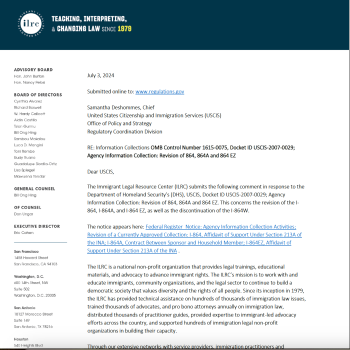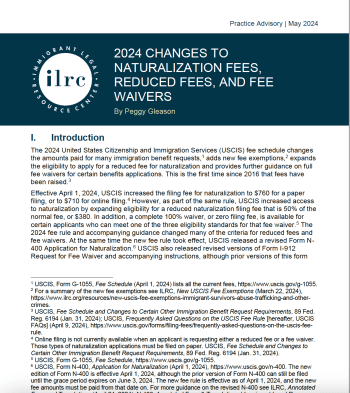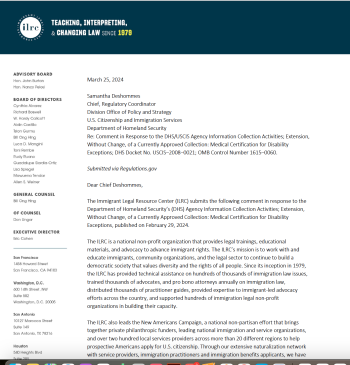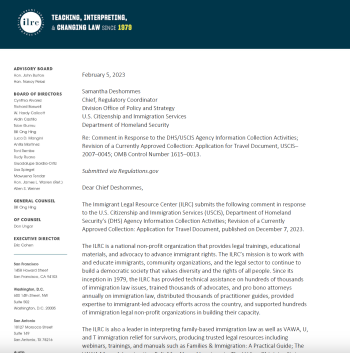Term Page
Policy Advocacy 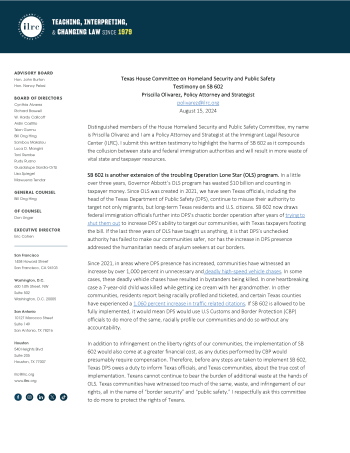
ILRC comments on Texas House Committee on Homeland Security and Public Safety Testimony on SB 602.
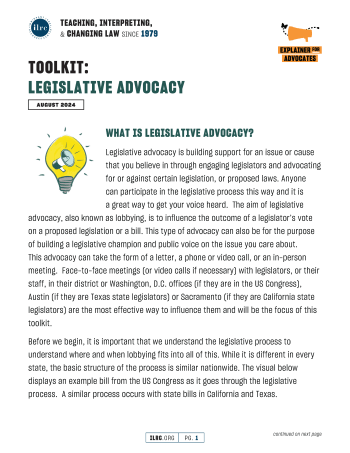
This toolkit is for advocates looking for guidance on how to engage in legislative advocacy, also known as lobbying. Legislative advocacy is building support for an issue or cause that you believe in through engaging legislators and advocating for or against certain legislation, or proposed laws. The aim of legislative advocacy is to influence the outcome of a legislator’s vote on a proposed legislation or a bill. This type of advocacy can also be for the purpose of building a legislative champion and public voice on the issue you care about.
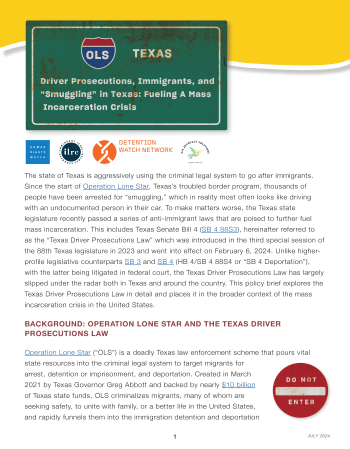
Texas authorities have expansively interpreted a 2024 law that imposes a 10-year mandatory minimum sentence on people convicted under the state's smuggling law to include giving rides to undocumented people, The Immigrant Legal Resource Center (ILRC), Human Rights Watch (HRW), Detention Watch Network (DWN), and AJA Advocacy Solutions said this report highlighting the law’s harm. The brief states that most people prosecuted for smuggling in Texas are young US citizens. Texas law enforcement officers have a troubled track record with identifying alleged smugglers, and now the state has raised the stakes of each arrest significantly.
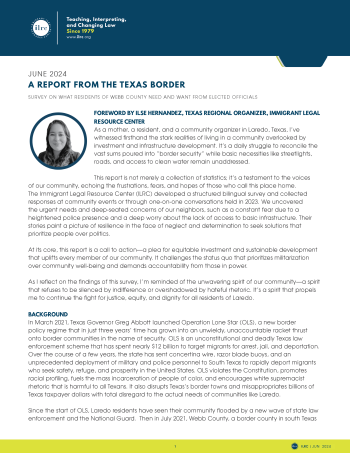
While politicians enact and reenact their reckless border theatrics, the ILRC surveyed border residents about their actual needs and how the influx of law enforcement efforts has affected them. We found that while the state of Texas spends more and more money on police and prisons, local governments are starved of funding and communities lack the most basic services, including clean water, paved roads, and street lights.
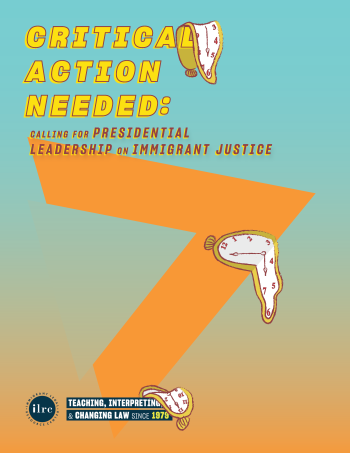
Throughout the Biden administration the Immigrant Legal Resource Center (ILRC) has called on the President to both restore the systems that offered protection and access to immigration benefits decimated during the Trump years and steer us on a new path toward dignity and justice. This proposal highlights the critical actions immigrant communities need before this administration ends include ensuring immigration benefits are equitable and accessible for low-income immigrants of color and ending immigration arrests, immigration detention, and deportations.

Throughout the Biden administration the Immigrant Legal Resource Center (ILRC) has called on the President to both restore the systems that offered protection and access to immigration benefits decimated during the Trump years and steer us on a new path toward dignity and justice. This proposal highlights the critical actions immigrant communities need before this administration ends include ensuring immigration benefits are equitable and accessible for low-income immigrants of color and ending immigration arrests, immigration detention, and deportations.
